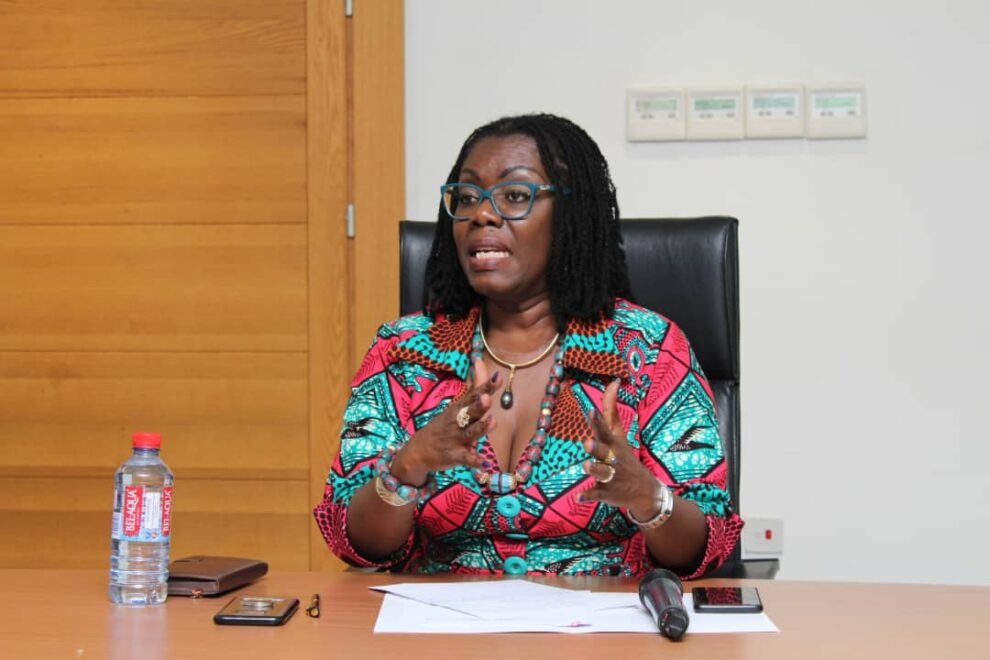A Bank of Ghana report has shown that, the country lost GH¢114 million through fraud in 2021, as a result, banks and specialised deposit-taking institutions (SDIs) have been urged to invest in setting up strong cybersecurity systems to help combat cyber fraud and reduce financial losses.
Mrs Ursula Owusu-Ekuful, Minister of Communications and Digitalisation, who gave the advice, also encouraged them to invest in requisite digital forensic capabilities to collect, preserve, and analyse digital evidence to help prosecute such crimes.
The Minister said this in a speech read on her behalf by Mr Alfred Nortey, Director of Finance and Administration, Ministry of Communications and Digitalisation, at the maiden Ethics and Forensic Excellence Awards organised by the Chartered Institute of Tax Law and Forensic Accountants (CITLFA), in Accra, over the weekend.
In all, 26 individuals were awarded, out of which seven were inducted as Associate Members of the Institute, while 19 were certified as Chartered Fellows, Fellows and Honourary Fellows.
Also, some institutions, including Metropolitan, Municipal and District Assemblies (MMDAs) and rural banks, that had performed creditably well, were awarded.
It was held on the theme: “Harnessing the Convergence Role Between Forensic Accounting, Financial Crime and Cyber Security”.
Mrs Owusu-Ekuful noted that, financially motivated crimes had witnessed a surge due to the increased adoption of digital systems and services for daily socio-economic activities.
For instance, INTERPOL, in its 2021 African Cyberthreat Assessment Report, noted that Business Email Compromise (BEC) and Ransomware, were among the top five (5) cyber threats of a financial nature, confronting member states.
Also, in its Global Crime Trend Report for 2022, INTERPOL maintained that financial crimes ranked among the top threats globally.
In Ghana, the 2022 Banks, SDIs and Payment Service Providers (PSPs) Fraud Report published by the Financial Stability Department of the Bank of Ghana, disclosed that the top five fraud categories were cash suppression or cash theft, cyber or email fraud, fraudulent withdrawals, impersonation and e-money fraud.
Again, statistics from the Cyber Security Authority (CSA) revealed that fraudulent online activities constituted the highest reported cyber-related incidents as between 2020 to the first half of 2023, the Authority recorded 433 cases of online fraud, comprising 34 per cent of the 1,266 overall cyber incidents reported.
“This further establishes the high risk financially motivated crimes pose,” Mrs Owusu-Ekuful bemoaned.
To combat the threats, the Minister of Communications and Digitalisation encouraged collaboration and information sharing between sector regulators, law enforcement agencies, financial institutions, and other stakeholders.
She added that financial organisations must also “adhere to relevant regulations, industry-specific standards, and data protection laws to ensure the security and privacy of financial data”.
Mr Kwaku Nkrumah, President of CITLFA, said cyber crime was a major factor affecting Ghana’s economic growth.
A Bank of Ghana report indicates that, the country lost GH¢114 million through fraud in 2021.
Mr Nkrumah said professional bodies such as the CITLFA had an important role to play in combating such financial fraud.
He, therefore, urged financial organisations to collaborate with such professional bodies.
Source : Ghana Buisness











